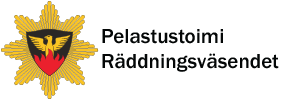

Accident risks at home
Is your home safe?
More than one million serious or minor accidents happen every year in Finland, of which more than 70% occur at home and during leisure time. In 2017, almost 400,000 people were injured in accidents at home. This means that every day, more than 1,000 injuries are caused by accidents at home.
The home is a surprisingly dangerous place. Up to two out of the three accidents happen at home or during leisure time. It is worth trying to prevent accidents!
Most common causes of accidents
Falling, slipping, tripping or falling from a height are the most common causes and account for around 44% of all accidents at home. Most of these accidents occur in the garden or on the balcony or terrace. Slippery conditions caused by the weather make the accident risk many times higher, and this is why spreading sand or salt is recommended. You should also instal sturdy handrails in your yard and have bright outdoor lighting.
Indoors, one out of ten accidents occur in the wet areas of the home. To prevent the risk of slipping and tripping on wet floors you can make sure that you have a robust handrail in the sauna, for example, and enough support handles.
Most older people who have falls do so indoors. This is caused by their poorer mobility and coordination, effects of medication and memory problems. Exercises that improve flexibility as well as muscular fitness and balance reduce the risk of falling, as do non-slip mats and good shoes. Shoes with studs, poles and other aids to prevent slipping are available for outdoor exercise. The simplest thing is to avoid going out in slippery conditions.
Carelessness causes fires
One half of all fires are caused by people, and around one out of three are due to carelessness. Fires in homes are caused by using a fireplace or electrical appliances incorrectly, carelessness with open fire and candles, and smoking. More than 90% of fire-related deaths occur in residential buildings. Alcohol often plays a role. Remember that when a fire breaks out, you do not have much time to react – only two or three minutes.
Anticipating what could happen is the best way to prevent fires at home.
- Make sure you check regularly that the smoke detectors and other alarm devices work. When your holiday house has been empty over the winter, for example, you should replace the batteries immediately on your first visit.
- Get to know safe escape routes that you can use if fire breaks out. Teach them to your family members.
- Acquire first‑response firefighting equipment. Ensure that the equipment is placed in a visible and easily accessible location. Inspect the equipment regularly and ensure that any necessary maintenance is carried out as required. The owner of the building is responsible for the acquisition and maintenance of smoke alarms.
- The recommended solution is to install interlinked smoke alarms. When one detector in the series activates, the others will sound simultaneously.
- Always keep an eye on candles or open fire.
- Take care when using electrical appliances, especially a cooker.
- Avoid smoking indoors and if you have been drinking alcohol.
Make sure your house number is clearly visible – this will speed up the rescue
Clear signs speed up the rescue; you should make sure that the street number of your home and staircase numbers are easy to see. Check that they are clearly visible from the street or road. They should also be visible in the dark and be clear enough to guide an emergency vehicle to your address. The house number should be at least 12 cm high and clearly visible against its background. In a group of buildings, a sign/map which shows the numbers and locations of the buildings must be placed on the access road.
Anticipate what could happen. It helps to avoid accidents.
Reducing the risk of accidents and injuries and improving safety is easy
A large share of accidents at home can be prevented by good preparedness and anticipation. Even such minor things as keeping medicines locked up, fixing handrails securely and automated lighting systems prevent accidents and injuries. Taking care of fire safety and preventing burglaries is simple and cheap with the help of modern technology and good equipment.
Read more:
Assessing the risk of falling (in Finnish)
Accident prevention (in Finnish)
Promoting safety (n Finnish)
Alarms and detectors


